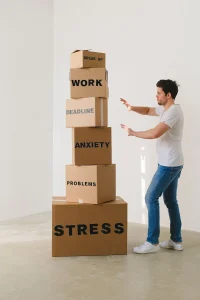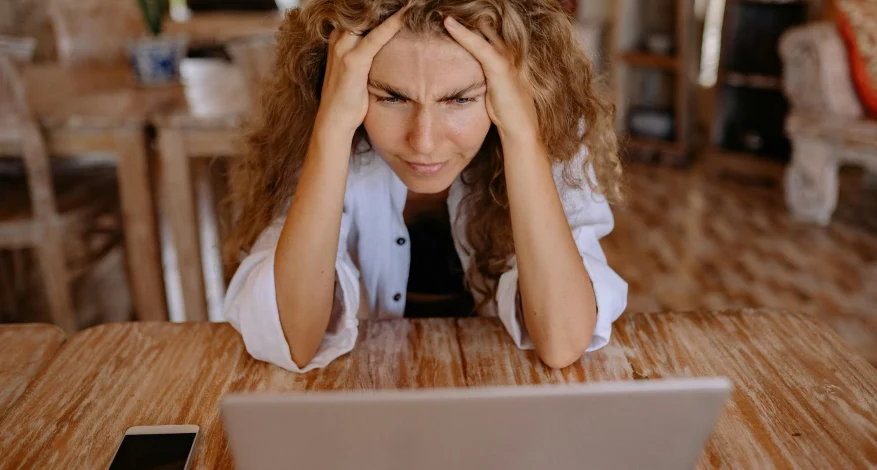Anxiety in the Modern World: Understanding its Causes, Effects, and Coping Mechanisms

How does one describe anxiety?
Imagine your mind is like a pot of water on the stove. When the heat is at a normal level, the water stays calm, and similarly, your mind.
With anxiety, it’s like the heat is turned up too high, causing the water to boil and spill over. This represents overwhelming feelings that make it hard to function until the mind can cool down and return to a calmer state.
So, let’s be clear: it’s natural to feel worried and tense occasionally in response to life’s stressors, but this doesn’t mean you have anxiety.
However, if these emotions consume you daily and affect your professional and personal life, it’s best to consult a psychiatrist to determine if you have an anxiety disorder, which can interfere with daily activities and worsen over time.
Let’s take a deeper look at some of the main causes of anxiety.
The Main Causes of Anxiety
Anxiety can be caused by genetic factors, brain chemistry imbalances, and environmental stressors such as life events, work, financial worries, digital overload, and relationship issues.
1. Medical conditions like chronic illnesses, hormonal imbalances, substance abuse
2. Lifestyle factors include poor diet, lack of exercise, and insufficient sleep.
3. Certain personality traits and childhood experiences. Social isolation and societal pressures further exacerbate anxiety.
You can only imagine the profound impact on daily life and personal relationships.
1. Physically, it can manifest as increased heart rate, muscle tension, headaches, and fatigue. 2. Mentally, it can lead to depression, panic disorders, and cognitive issues such as difficulty concentrating and memory problems.
3. Behaviorally, it can cause avoidance of social situations, withdrawal, and irritability. These effects can reduce productivity, lead to absenteeism, and impair overall performance.
Three Modern-Day Stressors
Work-Related Stress and Anxiety
The modern work environment, characterized by high-pressure deadlines and the constant drive for productivity, is a major source of anxiety.
Managing stress through time management, prioritization, and setting realistic goals can help alleviate this burden.
Financial Pressures and Uncertainty
Economic instability and personal financial concerns are common sources of anxiety. Worrying about bills, debt, and the future can lead to significant stress.
Developing a solid financial plan and seeking advice from financial counselors can help mitigate these worries and provide a sense of control.
Social Media and Digital Overload
Our constant connection to technology and social media significantly contributes to modern anxiety.
Limiting screen time and social media use, along with practicing healthy technology habits, can provide substantial anxiety relief.
Why It’s Best To Speak With a Psychiatrist
A psychiatrist can thoroughly evaluate and identify anxiety triggers, develop management strategies, and possibly recommend medication.
This holistic approach addresses underlying medical conditions and co-occurring mental health issues, complemented by self-healing tools to reduce anxiety.
Mindfulness and Meditation Techniques
Mindfulness and relaxation techniques are powerful tools for managing anxiety. Practices like meditation, yoga, and deep-breathing exercises can help calm the mind and reduce stress.
These techniques encourage a focus on the present moment, which can alleviate the overwhelming feelings often associated with anxiety.
Exercise and Physical Activity
Regular physical activity is one of the most effective coping mechanisms for anxiety. Exercise releases endorphins, which are natural mood lifters.
Whether it’s a daily walk, a gym session, or a yoga class, incorporating physical activity into your routine can significantly reduce anxiety symptoms.
Healthy Lifestyle and Nutrition
Maintaining a balanced diet and getting adequate sleep are crucial for anxiety management.
Nutrient-rich foods support brain health, while proper sleep can prevent insomnia and other sleep disorders that exacerbate anxiety.
Take Control of Your Anxiety
Understanding the causes and effects of anxiety is the first step toward managing it effectively.
By implementing coping mechanisms like lifestyle changes, mindfulness, exercise, and seeking professional help, you can take control of your anxiety and improve your mental health.
If you or someone you know is struggling with anxiety, don’t hesitate to seek more information, call us or book an online appointment.



